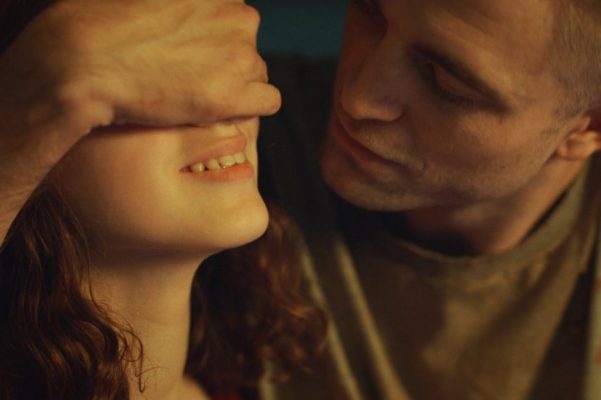@Filmhouse, Edinburgh from Fri 7 June 2019
The deep solitude of space has long been filmmakers go-to option to examine the inner facets of the human soul. Claire Denis’s long gestating project, High Life, follows in that grand tradition with a curious and cumbersome entry into the canon. One that liberally pays homage to the giants of its lineage but never quite manages to find its own footing.
The film opens stark, with Monte (Robert Pattinson) fixing outer panels on his spaceship while gently cooing to his infant daughter on board. The pair being the sole occupants of a ship that evidently once held more, and shows clear signs of struggle, tragedy and death. It’s into this mysterious opening that the film gradually, through flashback and inconsistent monologues, tells the story of how the vessel full of ex-convicts on an experimental mission came to tragedy. It’s an exploration of facets of the human experience, our obsessions with conduct, daily rituals and considerations the meaning of being and redemption.
It’s well acted, and for the most part directed with aplomb; with the most intriguing moments being the quiet interactions between the characters, and their individual personas. Tensions rise and fall as the stoic and quiet celibate Monte jars with Mia Goth‘s violent tearaway, Boyse, or muses quietly with salt of the earth Tcherny; a surprisingly measured and understated turn from musician, André Benjamin. Contrasting with the working prisoners is the inscrutable Dr Dibs (Juliette Binoche), the scientist and somewhat leader of the expedition, who has her own dark past. Her raison d’etre is to create a viable child on the ship, by harvesting semen from male crew to impregnate the female members. Despite this, there is a clear no fraternisation rule in place, as well as a slightly perturbing masturbation chamber that is clearly used frequently.
The visual experience is certainly up to par as one would expect from Denis and cinematographer Yorick Le Saux, who infuses each shot with a vivid solidity. However the film also starts to show the flimsy edges of where it’s clearly trying to straddle the line between homage and trite theft. As the richly coloured segments on the ship contrast with washed out footage of earth that switches both the aspect ratio and film stock. This leads to moments that seem like clear homages to Tarkovsky, and his masterwork, Solaris, from which comparisons are both damning and inevitable; but also serve as little more than mini-exposition dumps. The film also never quite lives up to the standards of other similar themed films about isolation in space, as it pales in comparison to the heartbreaking simplicity of Moon, or even the quaintness of Silent Running.
The main trouble with the narrative is that as the film continues, the mystery becomes less and less interesting. There’s a clear predictability to events as they unfold, and a leaning towards mundanity that grows throughout. It’s also hard to really care about any of the characters beyond Pattinson and his daughter, since they are so thinly sketched. Goth seems to have been cast to reprise her familiar, quirky but damaged routine taken to an extreme, and the rest are given relatively little to work with. The exception to this is Binoche, who clearly is the focal point of this movie, as she swamps the film with myriad scenes despite the focus of the movie not really being about her. This comes to a head in a several minute long scene of her pleasuring herself in the maturbation chamber.
Obviously, this being art house cinema, there is a clear level of interpretation that can be read into the film, but given the messy nature of the pacing, editing, and the high genre bar into which the film steps, it can only fairly be viewed as a curious failure.
